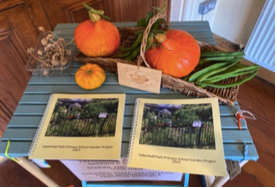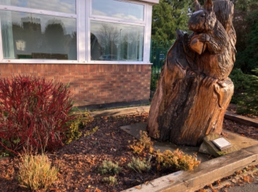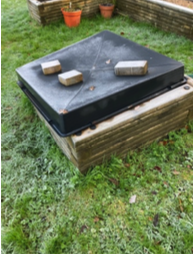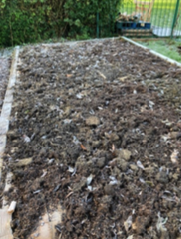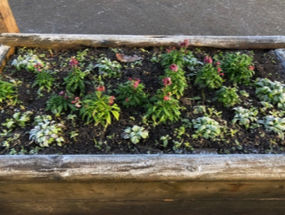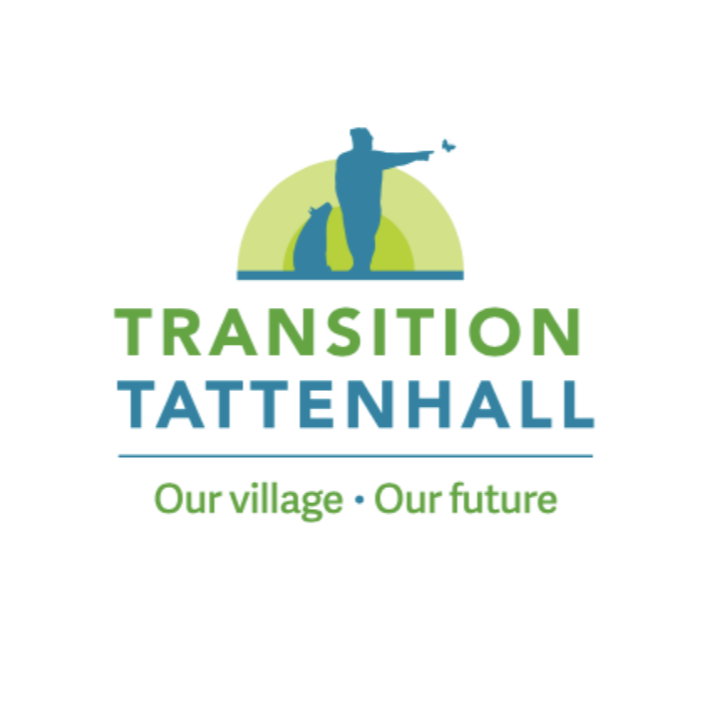In March 2023 the Transition Tattenhall biodiversity team discussed ways of extending the community awareness of the Mini Meadow project. The suggestion to involve the local school evolved. Jenny Thompson organised the clearing of the raised bed in the School Memorial garden, which had never on been used. Bulbs that were sprouting in bags were planted in pots. Dan Jenner (teacher), Early Year’s Foundation Stage (EYFS ) staff, Jenny and Fiona Wilson hold meetings. The project begins!
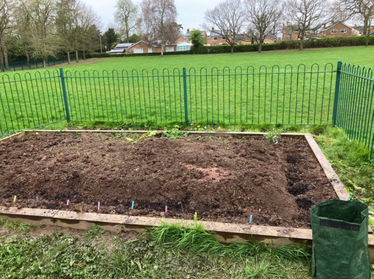

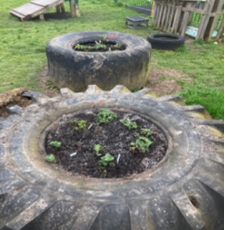
Meetings were held with the Early Year’s staff to create a Mini Meadow plot in their outdoor space. Jenny and Fiona created three plots. With funding from Transition Tattenhall (TT), mixed annual wildflower seeds were scattered by Nursery and Reception children one very wet April day.
Existing old tyres were filled with perennial plants donated by Jen Benefield. The children learned their names and used their senses on the leaves. The children watered the seedlings and plants. All EYFS and Key stage 1 children took home a small packet of seeds to sow in open ground or recycled containers. It was difficult to qualify the success of the latter.
Nick and Jenny worked together on applying for a grant from the PC and £500 was awarded. This has enabled us to purchase tools, a small water butt, seeds, plants, compost, a wheelbarrow. Children from the school holiday clubs became involved with sowing seeds, planting potatoes and caring for the plants. They learned how to create plant pots from rolling strips of newspaper.
In the Summer Term an after-school gardening club for Key Stage 2 children was formed. 15 children joined Jenny, Fiona and Sharon Hart (teaching assistant) to start planting up the vegetables in the raised beds. We planted runner beans, courgettes, radishes, squashes, broad beans and chard. In separate pots we planted tomatoes and a wide range of annual seedlings. These were distributed around the school in various planters. A new wooden trough was donated by a local resident was filled with cosmos, nasturtiums and love in a mist etc. This all produced a beautiful , colourful display . Staff, as well as children’s, wellbeing hopefully benefitted from this.
The wildflower mini meadows developed well. They were much appreciated by the wider community as they walked by. All the flowers were visited by minibeasts and birds. Two bug hotels created by the garden club have helped to encourage wildlife. They were included in the village Mini Meadow trail.
The children were amazed by the sight of homegrown vegetables. They learned how to water and care for everything in the heat of early summer. Eventually teams of Y6 pupils took on watering duties in the afternoons. Early Year’s children helped to harvest the wonderful crop of potatoes. We sold them at the school fair and raised £60! The bumper crop of runner beans were sold in the Spar and Flacca market raising another £40. All proceeds have helped to purchase new resources for the garden. There was also a small donation made by an interested local resident. All the time we have been raising the profile within the community.
In addition to developing awareness of biodiversity with the wildflowers in their play area, the Nursery and Reception visited Glebe Meadow for the first time to look for minibeasts. This was organised with the help of Chloe Aldridge.
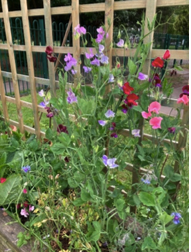
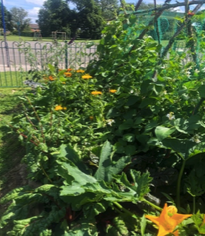
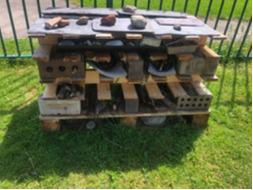
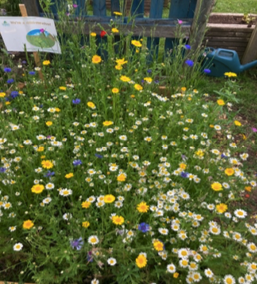
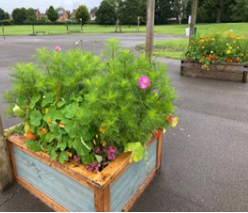
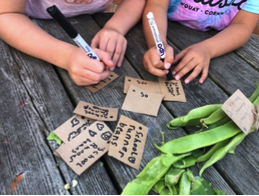
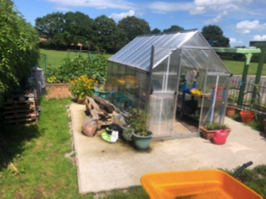
The project extended into the Autumn term. Some of the children’s vegetables and flowers were entered into the Annual Garden show at the Barbour. Next Autumn it would be exciting to develop school involvement in this community event further. Seeds were collected from wildflowers and annual bedding plants and stored away to complete the growing cycle once sown again in 2024.
In November a Saturday morning weeding and clearing session saw parents, grandparents, small children and friends tidying up Seymour Squirrel and the park side of school. Chippings were generously donated by Treefellas.
Looking forward to 2024
A no-dig method has been used to ‘overwinter’ the raised bed. Manure was donated locally and laid over a bed of cardboard. In Spring we will restart the project using our 2023 experience and lessons learned along the way!
The children have helped to plant bulbs in readiness for early Spring this time. We reused some bulbs from this year.
We now have a cold frame (from Freda Davies as a leaving gift), an old feed trough (Nick and Jen) and a suggestion from EYFS to convert an old sand pit into a small, raised bed.
The tidied-up garden beds are in need of a development plan and a team of willing children.
The after-school garden club will restart in February with a new group of children every half term.
We hope that positive links will develop with the new head, Nicky Bolton. Grateful thanks go to the acting head, Mair Fairweather and Anna Cromish (Acting Deputy)for their encouragement and support. The school leadership team are considering ways of the garden project learning opportuni?es being incorporated into the curriculum. It feels like the project is moving forward in a way that will benefit a wider range of children.
With some funding support the Early Years will have the opportunity to sow more wildflower seeds (including the harvested ones) and grow vegetables.
Following enthusiasm from parents at the initial session suggestions are to hold monthly school community gardening sessions.
